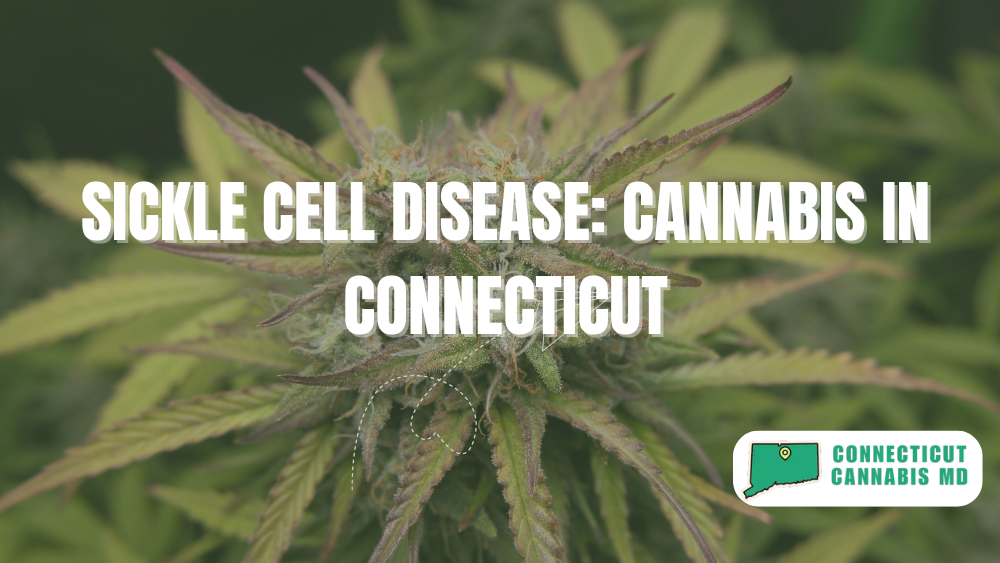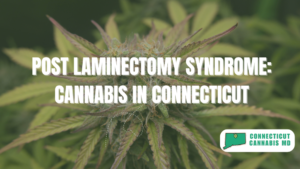Information intended for those living with HIV/AIDS takes into account conditions like chronic pain, nausea, and poor appetite. Medical marijuana can also be a natural source of alleviation for all those who have to take some conventional medicines. Since HIV/AIDS is considered a qualified condition, Connecticut’s medical marijuana program offers patients of this sickness an opportunity to use cannabis.
In this article, I will guide you through the process of getting a medical marijuana card for HIV/AIDS in Connecticut. In this article, we will look at the conditions that qualify you to submit your own application for getting a medical marijuana card, how the process works when applying for a marijuana recommendation, and how telemedicine has made it easier to get a marijuana recommendation. At the end, you will be in a position to understand how to start with and how medical marijuana aids in managing HIV/AIDS symptoms.
Why HIV/AIDS Patients Use Medical Marijuana
Unfortunately, HIV/AIDS can cause a number of severely disabling signs and symptoms, most of which cannot effectively be managed by modern drugs. Medical marijuana has been found to work for a number of symptoms related to HIV/AIDS, and it has, therefore, added to the number of ways through which patients can be treated.
Primary and Secondary Conditions Treated with Medical Marijuana
Chronic pain: Nerve pain is very common in HIV/AIDS patients mainly because the nerves are damaged and inflamed most of the time. Cannabis use in medicine has been proven to ease pain without being more affiliated with opioids.
Nausea and vomiting: In fact, many anti-retroviral medicines will cause nausea and vomiting as some of the side effects, which can be treated by medical marijuana.
Appetite stimulation: There are food recommendations for people affected by HIV/AIDS since the disease impairs appetite, causing malnutrition. The use of cannabis enables patients to eat and, as a result, keep off diseases that may be a result of malnutrition.
Because of these conditions, many HIV/AIDS patients apply for a medical marijuana card so that they can be able to lead a better life as they treat their illnesses.
What is needed in order to be approved for a Marijuana Card for HIV/AIDS in Connecticut
Such patients as those diagnosed with HIV/AIDS in Connecticut are eligible for medical marijuana in the state. Qualifying patients’ requirements and the process of getting a medical marijuana card are as follows.
Qualifying Conditions
Connecticut medical marijuana program list accepts HIV/AIDS as one of the qualifying conditions. HIV/AIDS patients are allowed to get a marijuana card subject to a recommendation from a certified healthcare provider online.
A Guide to Obtaining a Medical Marijuana Card for HIV/AIDS: A Guide
It is very possible to obtain a Connecticut medical marijuana card, but getting there involves several procedures. Here is a detailed guide to help you navigate the application process:
Step 1: This is the perfect opportunity to make a telemedicine appointment.
The first step toward being recommended for a medical marijuana card is to get a consultation from an accredited healthcare professional.
This consultation can be face-to-face, but due to it being a contact illness, most patients have embraced telemedicine. Telemedicine is more efficient than traditional appointments because you can talk to a doctor from home.
During the telemedicine consultation, the provider returns the questions about your medical history, your current problems, and any previous interventions you had. If the doctors decide that marijuana can be effective for treating HIV/AIDS symptoms, you will be granted a marijuana recommendation.
Step 2: Can You Get Your Marijuana Recommendation Online
If the healthcare provider agrees that your conditions qualify for medical marijuana use, the provider will provide a recommendation. The recommendation you are about to get is crucial for the next step in applying for your medical marijuana card.
The Telemedicine consults are billed at $179 if it is the patient’s first time to join or $149 for individuals who need to renew their membership on annual basis hence relatively cheaper.
Step 3: Apply Online For Your Own Application
When you have your marijuana recommendation, you can fill out an application for the card through the Connecticut Department of Consumer Protection online. They have to apply with a valid proof of identity, proof of residency, and the recommendation by the marijuana-prescribing doctor.
It will also enable the applicant to fast-track the approval, and the entire process will not require you to make physical submissions.
Step 4: Await approval and get your card.
The DCP shall after that examine your information after submitting your application. After your application has been approved, you will obtain your medical marijuana card, which gives patients access to buy marijuana from marijuana shops across the state.
The Benefits of Using Telemedicine in HIV/AIDS Patients
Telemedicine has indeed changed the way patients in Connecticut go about getting letters for medical use of marijuana, especially, for instance, those who live with HIV/AIDS. The beauty of it is that it’s convenient, private, and a lot less hassles for those who may have mobility issues to get to a doctor’s clinic.
Why Telemedicine is Ideal for HIV/AIDS Patients
- Convenience: Mobility limitation or fatigue affects the majority of patients with HIV/AIDS. With the help of telehealth, they are able to get medical attention that they would have had to go out for.
- Privacy: The other advantage of telemedicine consultations is that they don’t allow for the stigmatization of patients, which they have to do in physical consultations.
- Affordability: As pointed out, telemedicine consultation for the marijuana recommendation costs $179 if the patient is a new client and $149 for the yearly renewal, so it is also relatively cheap in the long run.
Telemedicine helps HIV/AIDS patients to find a certified provider and submit an application for obtaining a medical marijuana card.
How Medical Marijuana Beneficial to HIV/AIDS Patients
On the benefits of medical marijuana, HIV/AIDS patients are able to find relief from the symptoms that normal therapies cannot treat. Below is an elaborate insight of how cannabis can enhance the lives of people who have contracted HIV/AIDS.
Pain Management
People living with HIV/AIDS usually suffer from long-term pain, normally not well dealt with with standard analgesics. Medical marijuana is used to treat chronic pain by binding with the receptors in the endocannabinoid system of the body, thus minimizing inflammation.
Reducing Nausea and Vomiting
Nausea is one of the most frequent adverse reactions to anti-retroviral agents, and it can be so intense that a patient cannot perform usual daily tasks. Cannabis for medical use has been proven to help with nausea, therefore enabling the patient to be consistent with their dosage.
Appetite Stimulation
Adherence to appropriate weight is important for HIV/AIDS patients. However, hunger and weight loss are some of the challenges most of these patients face. Cannabis is particularly famous for increasing hunger and allowing patients who lost their appetite to have meals and gain better weight.
Medical Marijuana for AIDS Sufferers: The Future of HIV/AIDS Mass Medical Marijuana Program in Connecticut
Since the medical marijuana program is steadily expanding in Connecticut, HIV/AIDS patients will be able to avail themselves of medical marijuana more readily in the future.
It is anticipated that telemedicine will have an even more profound role in making this process smoother for patients so that more people will consider using medical marijuana.
As more studies have shown the benefit of cannabis in the treatment of HIV/AIDS symptoms, medical marijuana in Connecticut stands promising.
A higher growth rate in acceptance and development of healthcare technology and acceptance of medical marijuana is believed to lead to better access to this product for patients in all parts of the state.
Conclusion:
Therefore, medical marijuana is a great asset in the management of HIV/AIDS because many of the symptoms it causes cause a significant impact on the patients’ achievements. Telemedicine, paired with Connecticut’s medical marijuana program, will allow patients to obtain this helpful treatment without having to make appointments.
Telemedicine makes it easier, as it allows patients to consult certified practitioners and engage in proper self-management of their condition in private.
If you are willing to know how medical marijuana helps with HIV/AIDS symptoms, make an appointment for a telemedicine consultation with a licensed doctor. Let’s begin your new life and improve your quality of life instantly by buying your prescription medical marijuana card online.
Frequently Asked Questions (FAQs)
What conditions qualify for a medical marijuana card in Connecticut?
HIV/AIDS is one of the qualifying conditions, along with others like chronic pain, cancer, PTSD, and epilepsy.
How much does it cost for a telemedicine consultation to get a marijuana recommendation?
The cost is $179 for new patients and $149 for yearly renewals.
Can I apply for a medical marijuana card online?
Yes, after receiving a recommendation from a certified healthcare provider, you can submit your application through the Connecticut Department of Consumer Protection’s online portal.
What are the benefits of using medical marijuana for HIV/AIDS symptoms?
Medical marijuana helps manage symptoms such as chronic pain, nausea, and loss of appetite, improving quality of life for HIV/AIDS patients.
How long does it take to get a medical marijuana card in Connecticut?
Once your application is submitted and approved, it typically takes a few weeks to receive your medical marijuana card.












